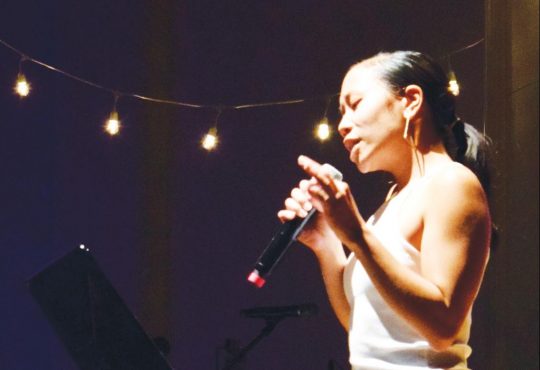The Race and Pedagogy Chism Series invited Professor Walidah Imarisha to Puget Sound last week as one of their Artists-in-Residence to lead a multi-media presentation on the role of youth in educational justice.
Imarisha is an educator, writer, professor, organizer and spoken word artist. She has taught in Portland State University’s Black Studies and Women’s Studies Departments, and Southern New Hampshire University’s English Department.
She has toured nationally and internationally with various groups performing, educating and challenging her audiences.
Before leaving Puget Sound, Imarisha hosted a poetry workshop titled “Our Word is Our Weapon: The Power of Radical Writing” in the Student Diversity Center. The workshop explored how writing can be a liberating process for individuals and communities, as well as a method of spreading awareness about the social justice movement.
Imarisha centered the workshop on how to use the five senses in any type of writing. She explained that the five senses are the basis of good writing because they make the words grounded, concrete and relatable to other people through the images and emotions that they evoke.
The theme of the workshop was social justice. Participants were asked to pick one aspect of social injustice and describe it through the five senses. From there, everyone joined together, tossing out ideas that related to the topic as Imarisha constructed a poem out of the responses.
The exercise was to prove how simple writing poetry can be; all it takes is an open imagination and a willingness to put the words on paper.
“Everyone has poetry inside of them,” Imarisha said. “It’s about finding the tools to bring it out in people.”
Imarisha described poetry as a way of knowing and engaging with the community through individual experience. After the group exercise, participants had a chance to write and share a poem of their own using the foundations that Imarisha had covered.
After the first drafts of poems were completed, Imarisha advised going back through the pieces and finding other areas where non-sensory words could be replaced with tangible evidence of the five senses.
Participants were encouraged to share their work with the group as a way of testing the flow and readability of their poems. Imarisha emphasized that “speaking aloud your words” is important “especially for marginalized voices” because it fully expresses the thoughts of the author.
Everyone was able to create at least one poem, and topics ranged from a description of an historical event, to the act of relating a personal experience on paper.
At the end of the workshop, Imarisha recited an original poem that connected the use of the five senses with the meaning of her words, and exemplified the importance of social advocacy.






